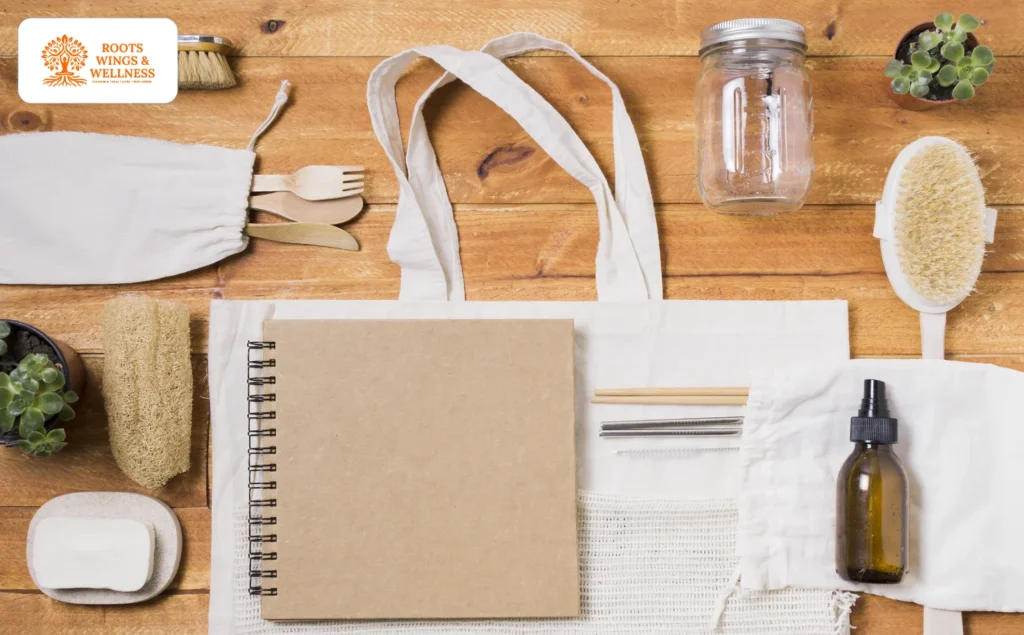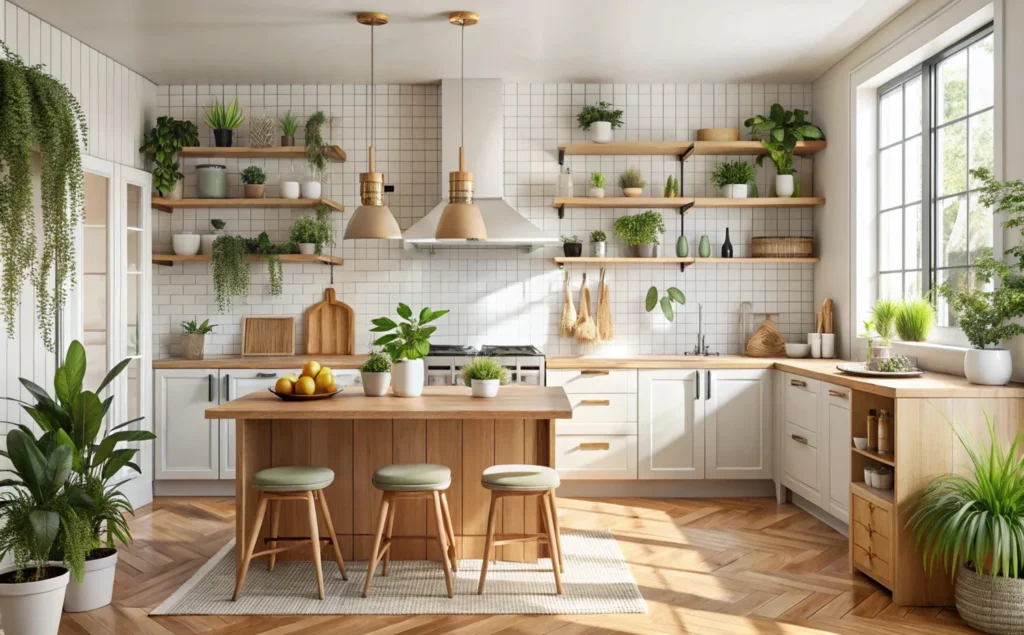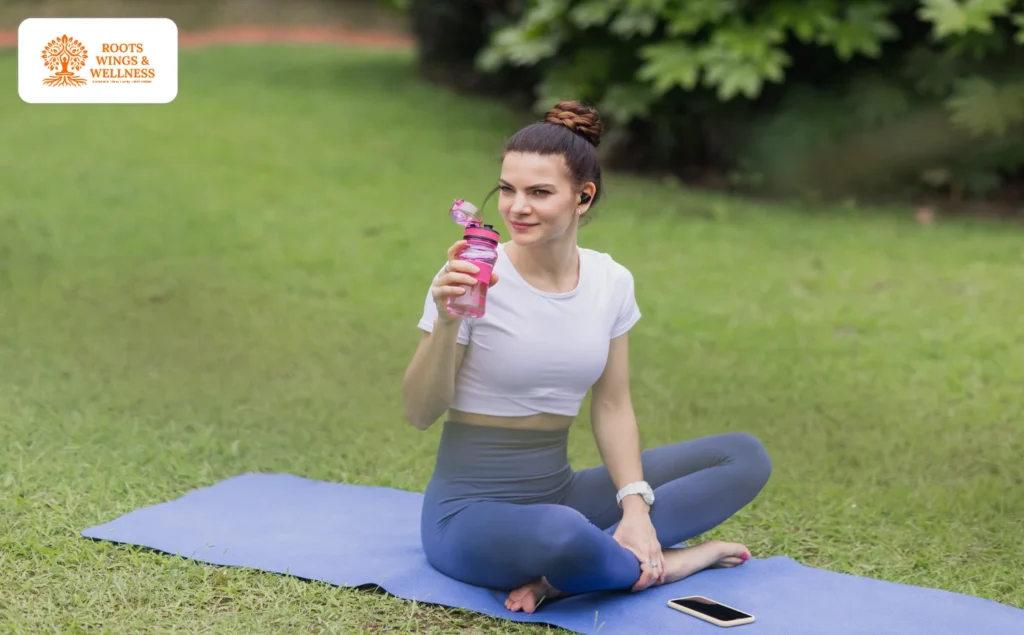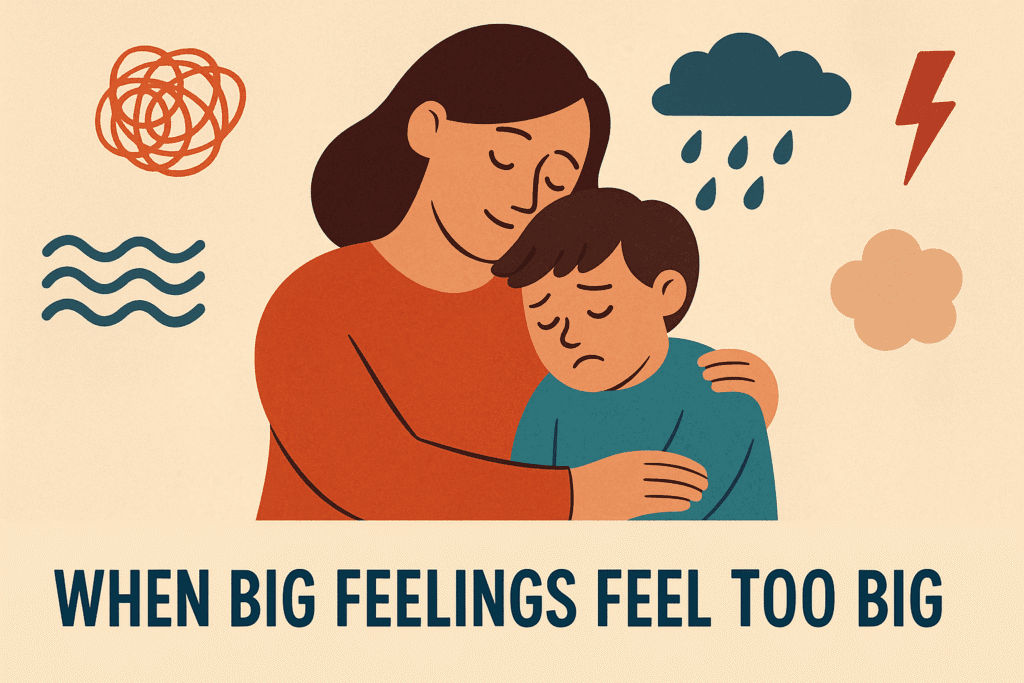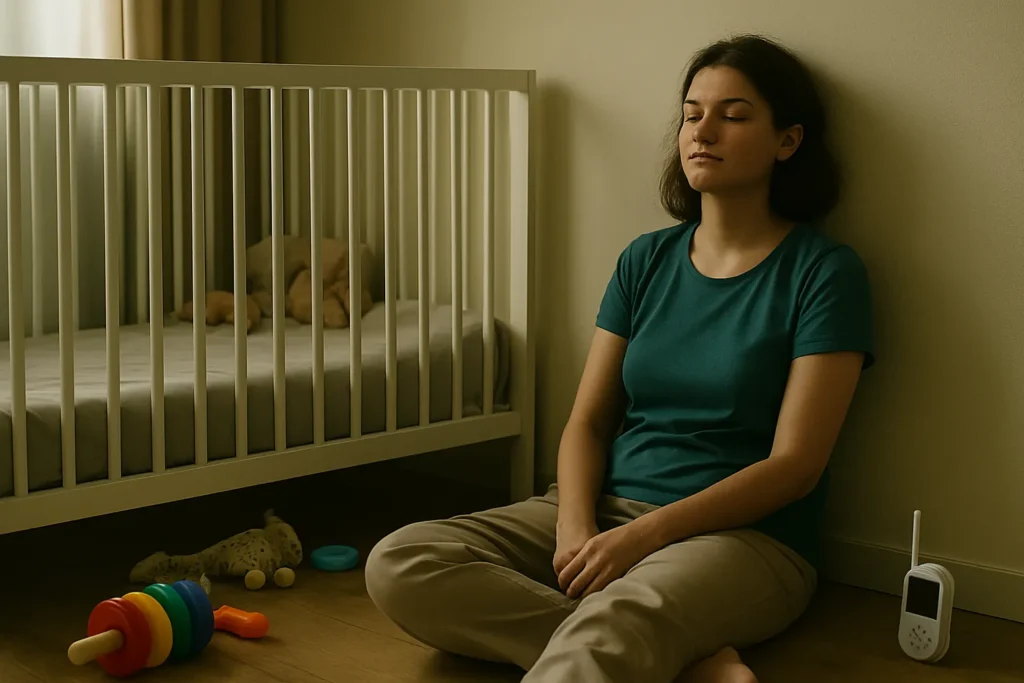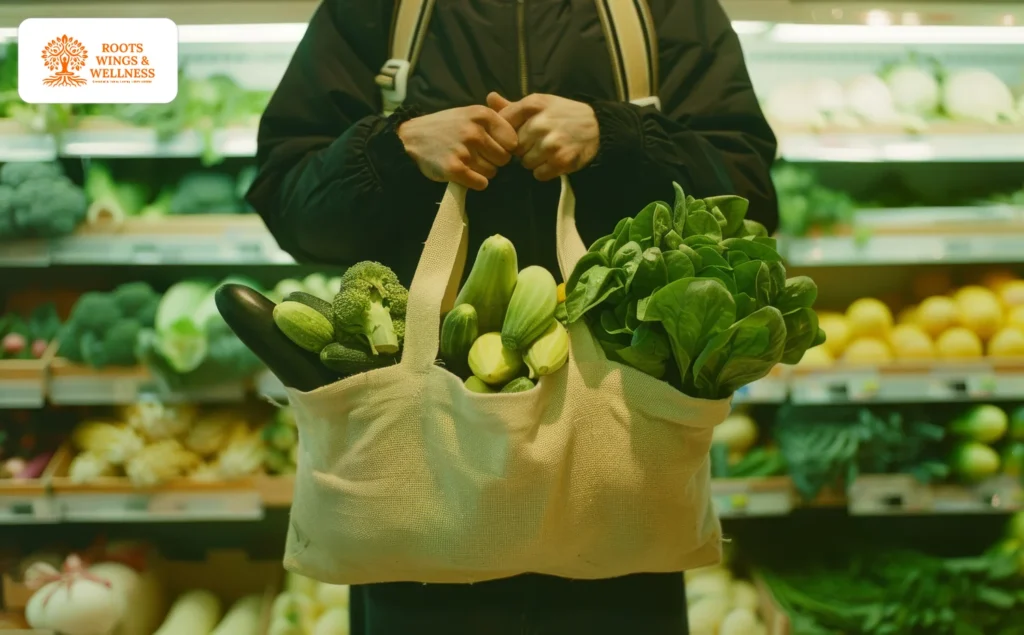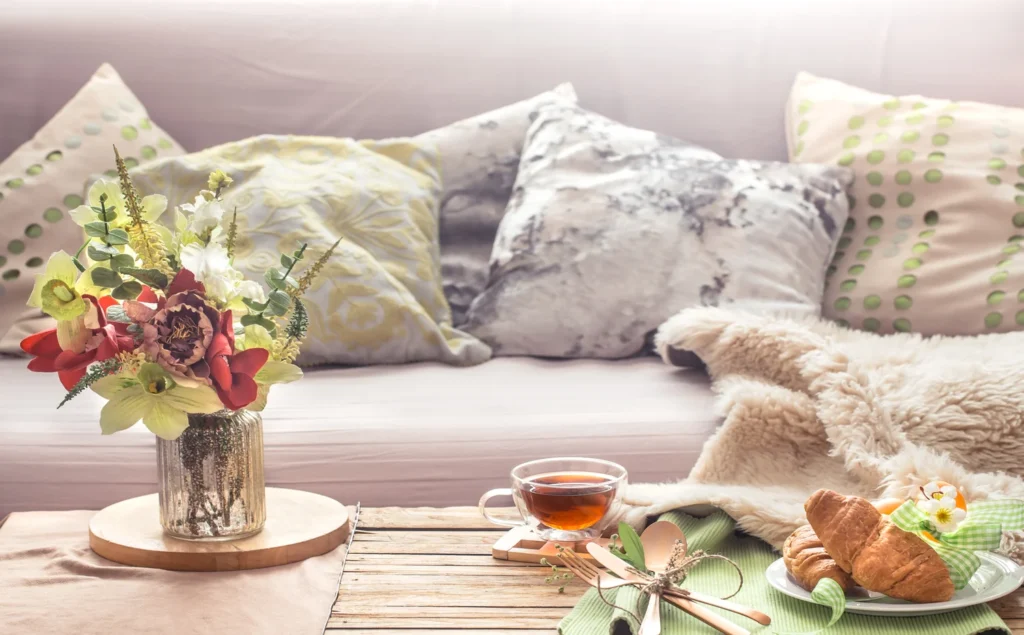Introduction: Why a Zero-Waste Home Matters
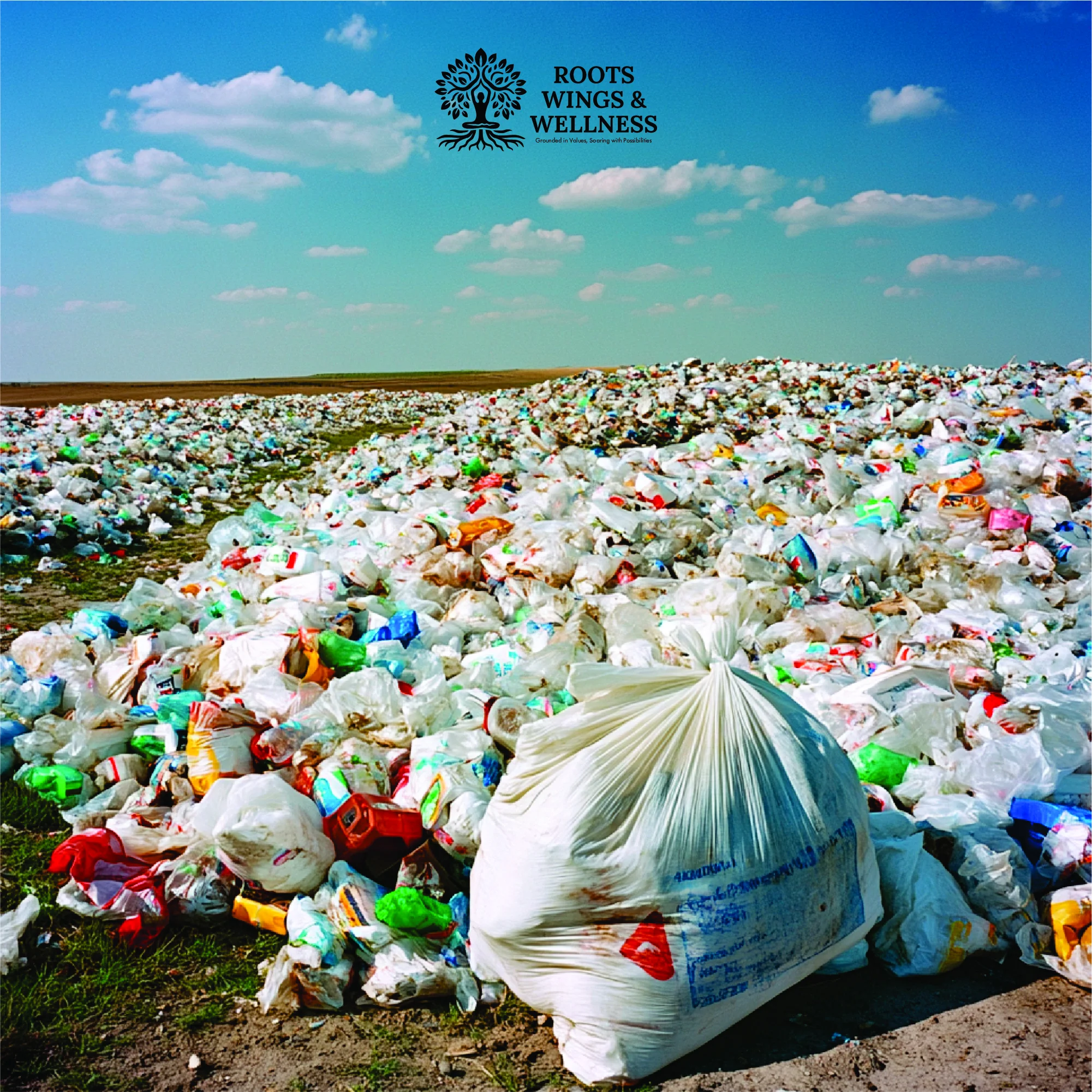
Take a moment to look around your home. See the plastic containers in your kitchen? The half-used cleaning sprays in the bathroom? The packaging from last night’s dinner?
Now imagine a home that feels lighter. One that’s free of unnecessary waste, filled with intentional choices, and safe for both your family and the planet.
That’s the power of a zero-waste home.
In a world drowning in disposable products and overflowing landfills, choosing a zero-waste lifestyle isn’t about being perfect—it’s about being mindful. It’s about progress, not pressure. And the best part? It’s more doable than you might think.
Let’s walk through what it really means to create a zero-waste home—and how even small shifts can lead to big impact.
Table of Contents
🌿 What Does It Mean to Live in a Zero-Waste Home?
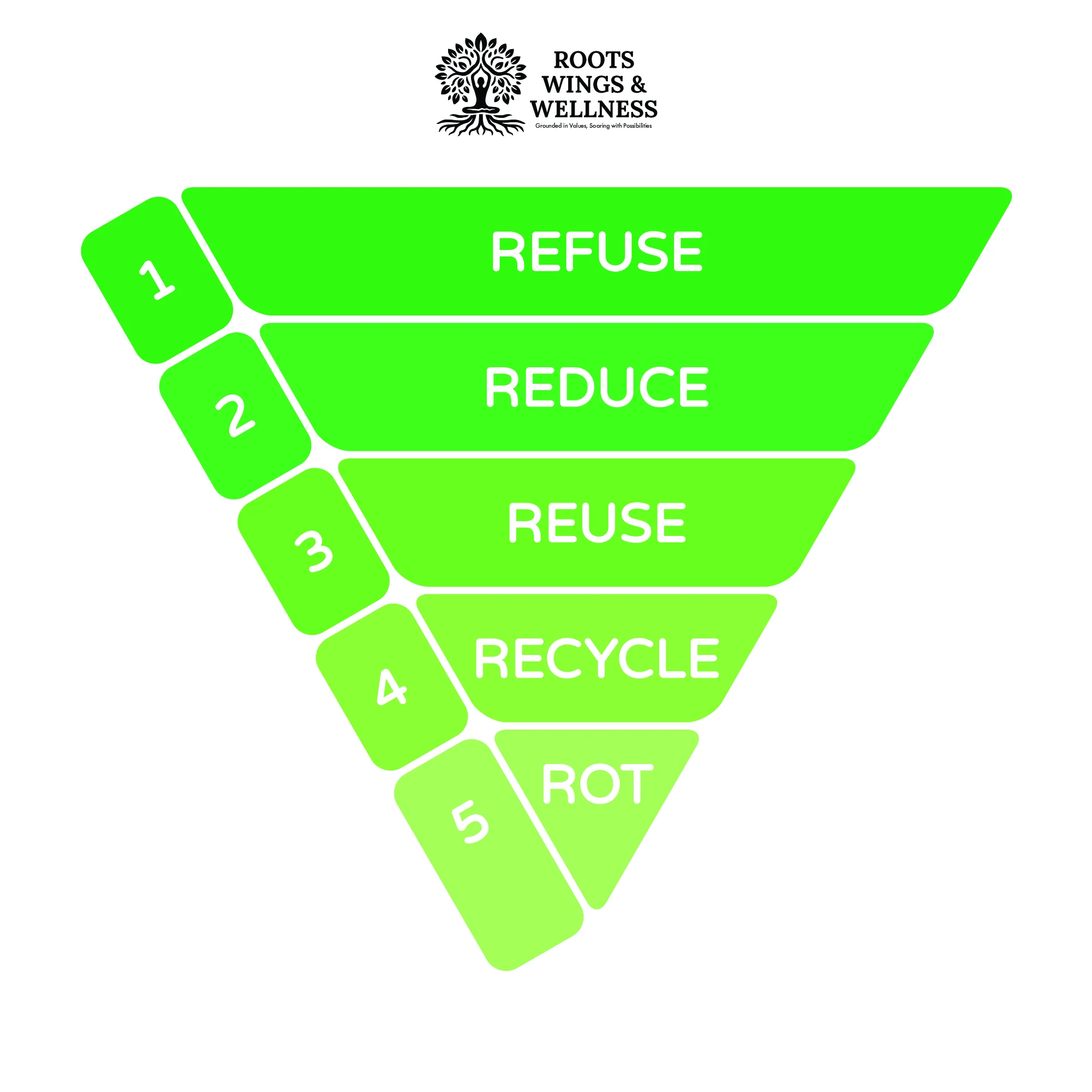
A zero-waste home isn’t about throwing out everything plastic in one go or fitting all your trash into a mason jar. It’s about rethinking your relationship with waste—and gradually creating a living space that aligns with sustainability, simplicity, and self-awareness.
At the heart of this lifestyle are the 5Rs of Zero Waste:
- Refuse what you don’t need (freebies, plastic straws, excess packaging)
- Reduce what you do need (buy less, choose quality)
- Reuse items as much as possible (jars, cloths, containers)
- Recycle only when truly necessary
- Rot—compost your food and organic waste
According to the Environmental Protection Agency (EPA), nearly 30% of the waste Americans generate comes from packaging and containers alone. Imagine how much waste we could prevent with just a few conscious choices each day.
🏠 Room-by-Room Swaps for a Zero-Waste Home
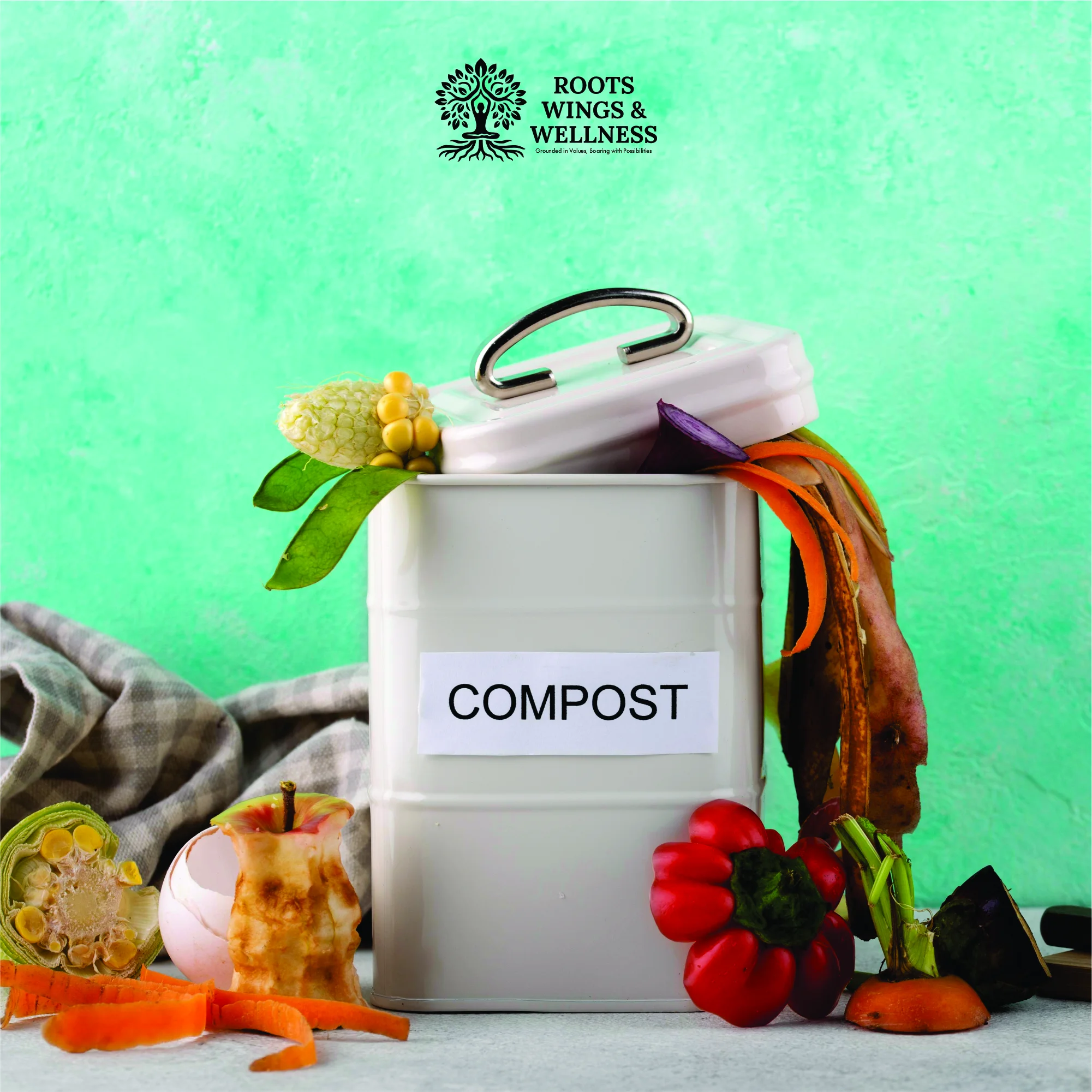
Creating a zero-waste home doesn’t require a full renovation. Start room by room, with small, effective swaps that reduce waste and add long-term value to your life.
🍴 Kitchen: Where Sustainable Home Living Begins
- Swap plastic containers for glass jars or stainless steel
- Use cloth grocery bags and reusable produce bags
- Set up a compost bin for food scraps
- Replace paper towels with washable cloth napkins
- Choose bulk food over individually packaged items
Want bonus eco-friendly home tips? Try plastic-free pantry hacks that also look beautiful..
🛁 Bathroom: Make It Clean & Conscious

Switch to bar soap and shampoo bars to eliminate plastic bottles
Use a bamboo toothbrush instead of plastic
Trade disposable razors for a metal safety razor
Choose toothpaste tablets or glass jar options
Use washable facial rounds or natural loofahs
These swaps don’t just reduce waste at home—they often last longer and work better, too.
🛋️ Living Room & Bedroom: Comfortable and Chemical-Free
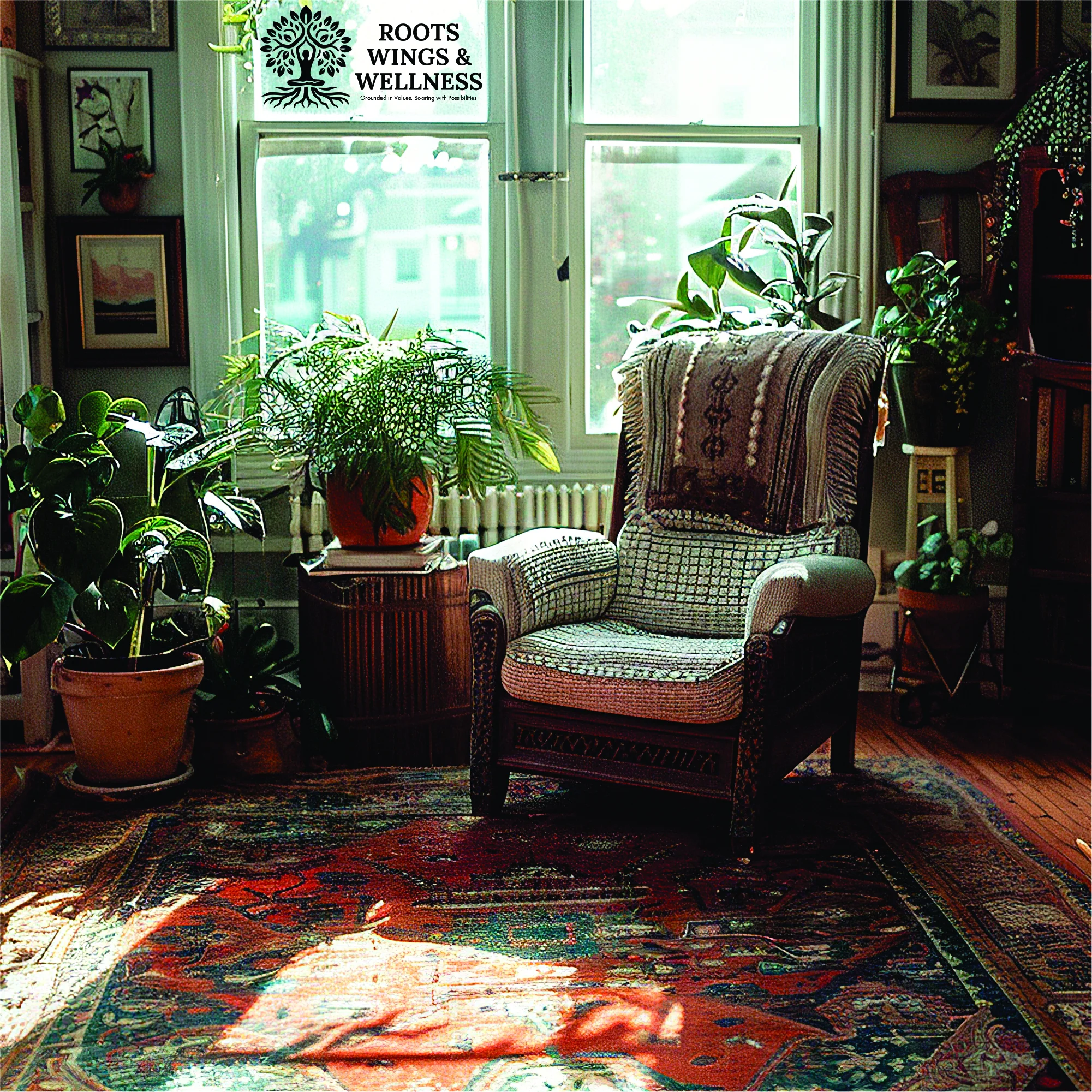
- Buy secondhand or sustainable furniture instead of mass-produced pieces
- Clean with DIY natural products (vinegar, lemon, baking soda)
- Switch to LED bulbs and unplug devices when not in use
- Choose bedding and curtains made from organic, biodegradable fabrics
These simple changes support eco-friendly home tips without sacrificing comfort.
✨ Daily Habits That Help You Reduce Waste at Home

Big change is built through small habits. These easy actions, when done regularly, make your zero-waste home sustainable in the long run.
- Plan your meals to avoid food waste
- Repair clothes and appliances instead of replacing them
- Shop with intention: do I need this, or is it impulse?
- Buy secondhand when possible
- Join or follow local zero-waste communities for ideas and support
These aren’t rigid rules—they’re flexible habits that meet you where you are.
5.🛠️ How to Live Waste-Free: Step-by-Step Guide
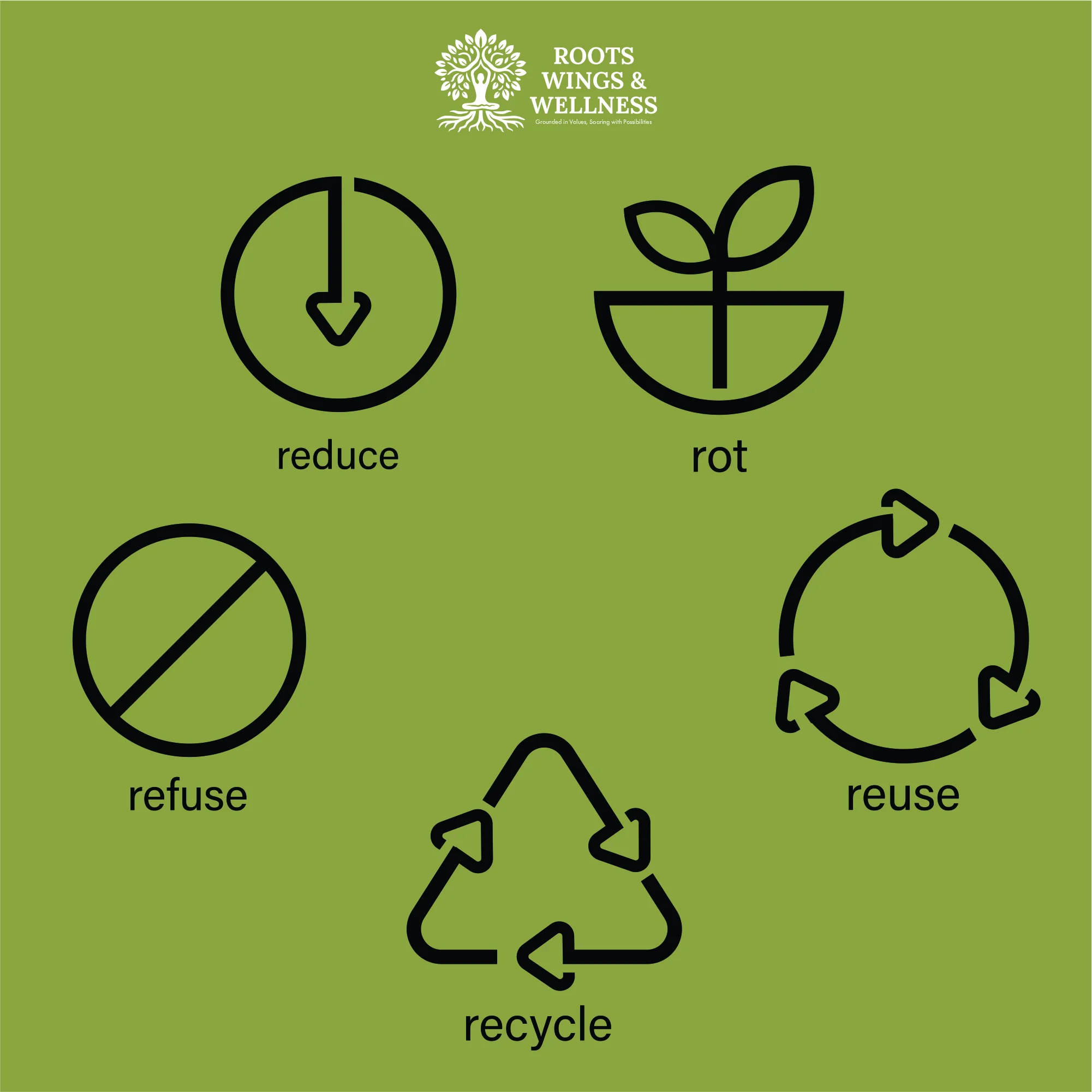
Transitioning into a zero-waste lifestyle doesn’t happen overnight. But it does start with one step. Here’s a realistic path to reducing waste and building a healthier home.
✅ Step 1: Do a Waste Audit
Track what you throw away for a week. It’s eye-opening—and shows where the real change needs to happen.
✅ Step 2: Embrace the 5Rs
Live by: Refuse, Reduce, Reuse, Recycle, and Rot. Start with one letter this week and build from there.
✅ Step 3: Choose Sustainable Products
- Reusable cloth bags
- Refillable water bottles
- Compostable packaging or bulk goods
✅ Step 4: Shop Consciously
Every purchase is a vote. Choose companies that align with sustainable home living values: plastic-free packaging, ethical sourcing, and transparency.
Need help transitioning your cleaners? Check out these non-toxic cleaning swaps that align with zero-waste goals.
6.💚 A Mindful Take from Roots, Wings, and Wellness
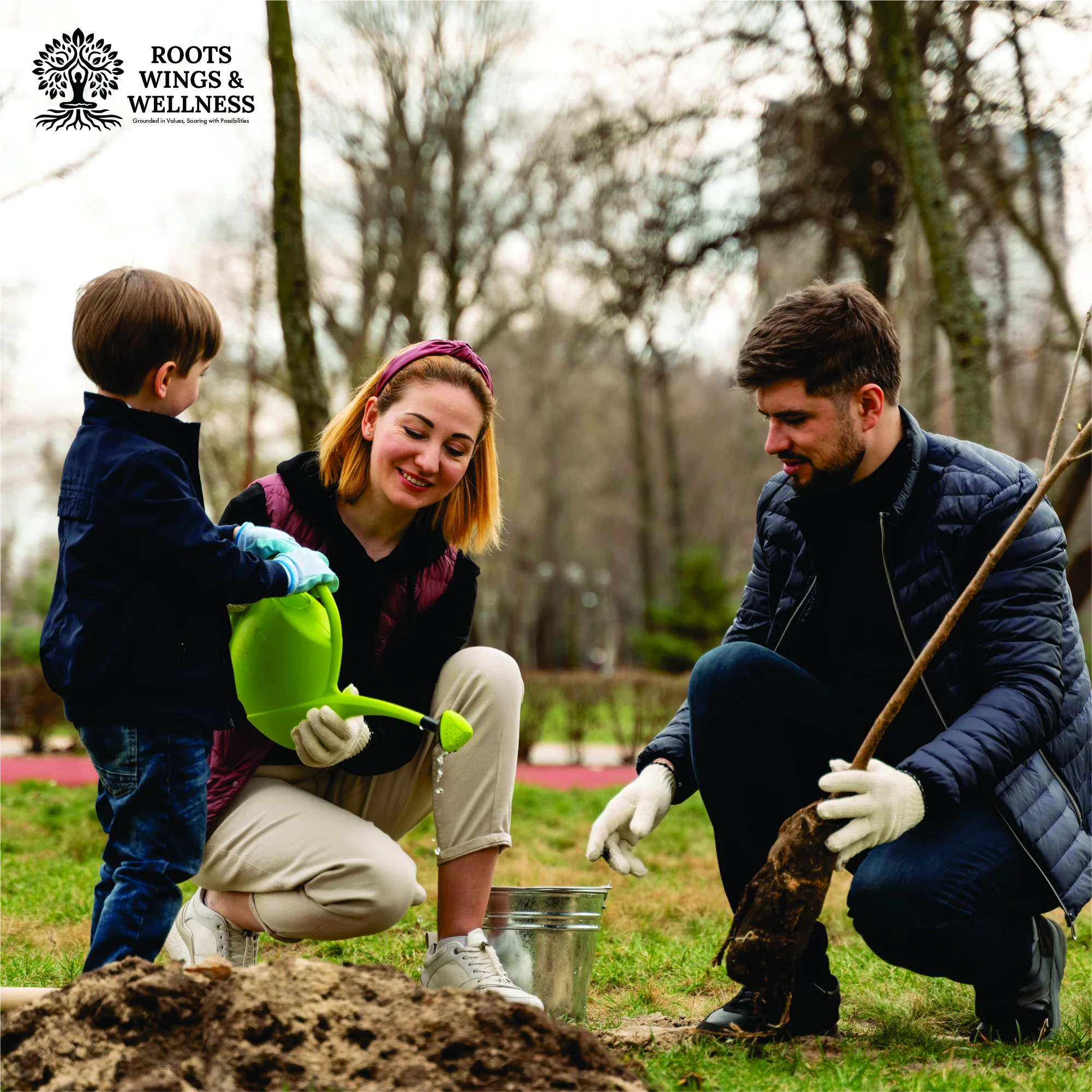
At Roots, Wings, and Wellness, we believe a zero-waste home is about more than just trash bins and compost piles—it’s about living in harmony with your environment and your values.
🌱 Here’s what we embrace:
- Mindful consumption—you don’t need more; you need better.
- Holistic wellness—non-toxic spaces improve mental and physical well-being.
- Cultural wisdom—traditional Indian homes used banana leaves for plates and cloth towels for cleaning long before “eco” became a trend.
This is your reminder that sustainable living isn’t new—it’s simply returning to what’s always worked.
7. 🧘 Final Thoughts: A Zero-Waste Home Is Built One Habit at a Time

You don’t need to get it all “right” to make a difference. Start with one drawer, one shelf, one swap. Then build from there.
Here’s what truly matters:
- 🌿 Every swap reduces your footprint
- 🪴 Sustainable home living adds up over time
- 💚 It’s not about perfection—it’s about progress
So—what’s the first zero-waste habit you’ll try this week?
Let your home reflect the world you want to live in.
Check out our insightful articles on personal growth and wellness at Roots, Wings & Wellness.
FAQ’S
It’s a home designed to reduce waste as much as possible—by using reusables, minimizing trash, and choosing eco-friendly options over disposables. Think less waste, more intention.
It might seem like it upfront, but it’s actually more budget-friendly over time. Cloth napkins, safety razors, and bulk food shopping all save money in the long run.
Start with one room or one product—like switching to bar soap. Then build momentum. Progress, not perfection, is the goal.
Minimalism focuses on reducing quantity. Zero-waste focuses on reducing environmental impact. The two often overlap—but aren’t the same.
Ditch plastic grocery bags. Keep cloth bags in your car or near the door. It’s simple, impactful, and a great way to start building your zero-waste home.

